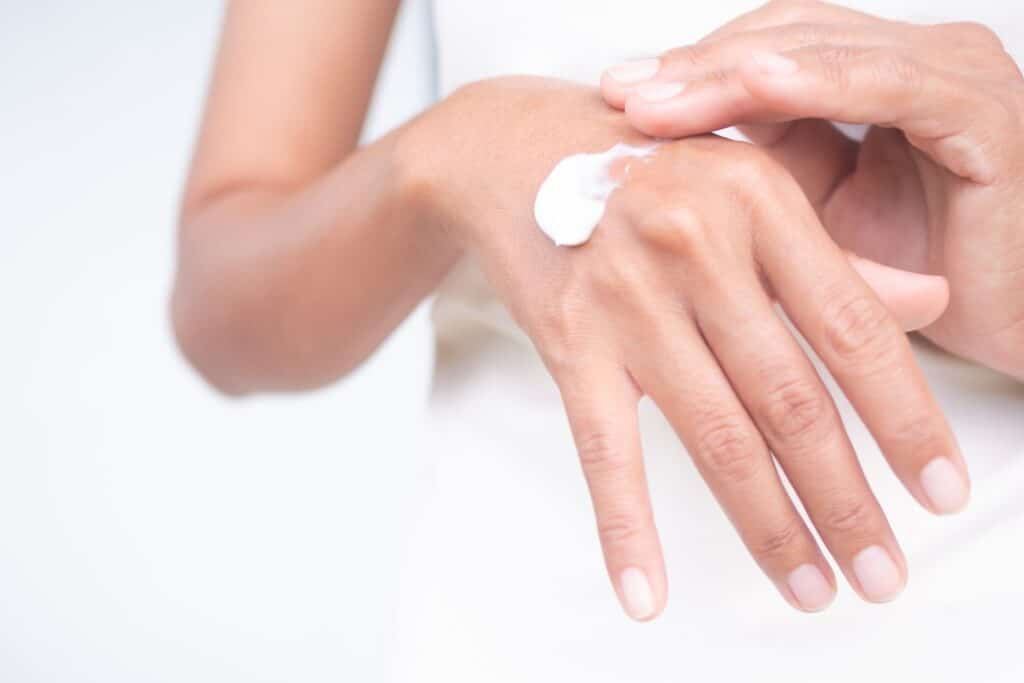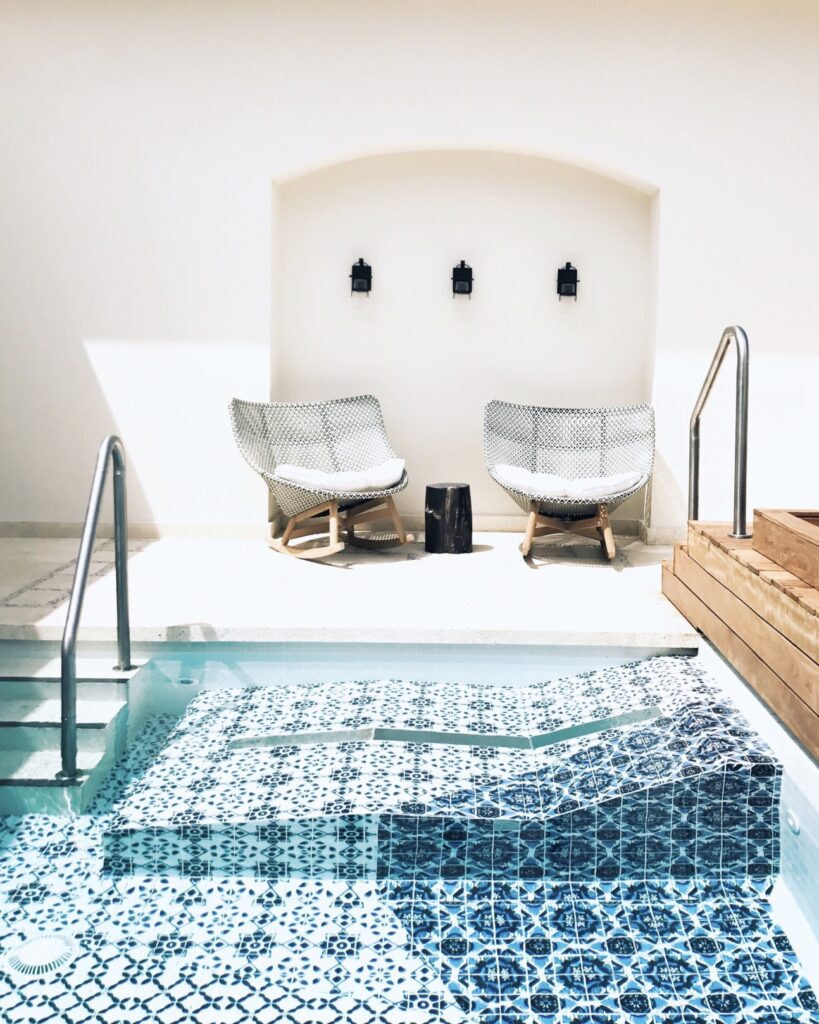As summer time comes alongside, you may be questioning how to decide on a non-toxic sunscreen. I’m right here to offer you sources for what to search for and what to keep away from in addition to my private favorites.
Not too long ago, a lot extra info has come out concerning our private care gadgets and their doubtlessly dangerous unintended effects. You definitely don’t need to be doing extra hurt than good once you slather up with sunguard!
My hope is that by the tip of this text, you’re feeling empowered to decide on not solely which sunscreen is finest for you, however when you need to put on it, too.
We’ve been instructed to put on sunscreen each day, however ought to we?
Right here’s one thing which may shock you. I don’t put on sunscreen each day, and I truly don’t advocate it both.
In truth, I wrote an article on the 8 Causes Why I Don’t Put on Each day Sunscreen. From adversarial results on the thyroid to a stunning improve in malignant cell improvement and past, I feel you’ll discover my 8 causes for not sporting each day sunscreen extremely compelling.
I select to enhance my very own potential to combat solar harm by strengthening my pores and skin from the within out. This implies consuming loads of complete meals Vitamin A and D in addition to highly effective antioxidant meals.
That mentioned, if I’m going to be within the solar for an prolonged time frame or if I’m going to the seashore, I’ll put on sunscreen. I simply make certain to decide on correctly!
UVA vs. UVB:
Most of us know that sunscreen protects us from the solar’s ultraviolet (UV) rays. There are two kinds of UV rays emitted from the solar, however what precisely is the distinction?
-
- Ultraviolet A (UVA) – has an extended wavelength, penetrates deeper into the pores and skin, and is related to pores and skin growing older, genetic harm and most cancers
- Ultraviolet B (UVB) – has a shorter wavelength, doesn’t penetrate as deep, and is related to pores and skin reddening and burning
A Shocking Notice on SPF:
In response to the Pores and skin Most cancers Basis, SPF stands for Solar Safety Issue. The quantity tells you the way lengthy the solar’s UVB rays would take to redden your pores and skin in case you apply the sunscreen in contrast with the period of time with out sunscreen.
Did you catch that? SPF measures ONLY safety in opposition to UVB rays. Nevertheless, as you learn above, UVA rays are literally the deeper penetrating rays which might be extra generally linked with pores and skin most cancers and growing older.
You may be shocked to know sunscreen SPF is capped at 50 by European and Japanese regulators. Australia caps theirs at SPF 30!
It’s so necessary to have a look at elements past SPF when selecting a sunscreen.
Listed here are 4 of crucial elements I have a look at when selecting a non-toxic sunscreen:
1. Select a Mineral Suncreen Over a Chemical Sunscreen.
Mineral sunscreens, similar to people who use zinc as a solar protectant, work very in a different way than chemical sunscreens, which use chemical compounds similar to oxybenzone, avobenzone, octisalate, octocrylene, homosalate, and octinoxate.
Mineral sunscreens sit on prime of your pores and skin and act as an precise bodily barrier to the solar.
Chemical sunscreens, alternatively, are absorbed into your pores and skin (and are then typically discovered within the bloodstream). By a chemical response, they take up and dissipate the solar’s UV rays.
Most of the chemical compounds utilized in chemical sunscreens are identified irritants, carcinogens and endocrine disruptors. Additional, some research have proven that chemical sunscreens can improve danger for redness, irritation, rosacea and hyperpigmentation.
2. Be Extra Involved With “Broad Spectrum” than SPF.
Broad spectrum sunscreen protects pores and skin from each UVB and UVA rays.
Relatively than selecting a excessive SPF sunscreen that will not have nice UVA safety, select a broad spectrum that can defend in opposition to all damaging kinds of UV rays.
3. Know Which Elements to Keep away from and Which to Look For.
Keep away from These Elements:
Octonoxate – linked to endocrine disruption, which might create hormone imbalance
Oxybenzone – an endocrine disruptor and has been related to reducing testosterone in teenage boys
Homosalate – has been linked to toxicity within the physique.
Parabens and phthalates – endocrine disruptors, which might create hormone imbalance
Added insect repellent
Perfume – typically consists of endocrine disruptor chemical compounds
*Notice, it’s also good to keep away from sunscreen aerosol sprays. Aerosol sprays typically comprise xylene and formaldehyde, that are identified neurotoxins and carcinogens.
Search for This As a substitute:
Zinc Oxide – a white, powdery mineral used for solar safety
*Notice, as a substitute of aerosol sprays, search for sunscreen within the type of lotions, lotions or sticks.
4. Test Your Decisions Utilizing EWG’s Pores and skin Deep Database.
The Environmental Working Group (EWG)’s Pores and skin Deep database provides folks options to guard themselves and their households from publicity to doubtlessly poisonous chemical compounds in private care merchandise. Pores and skin Deep lists easy-to-navigate hazard rankings for practically 70,000 merchandise and 9,000 components in the marketplace.
The decrease the score in EWG’s database (on a scale of 1-10), the cleaner the product. I at all times like to make sure my merchandise are proper at a 1.
My hope is that you just now really feel empowered to select a non-toxic sunscreen that most closely fits your way of life and wishes! Listed here are a few of my favorites:
thinksport Physique and Face Sunscreen Stick, SPF 30 EWG rating: 1
All Good Sports activities Sunscreen Butter Stick, SPF 50+ EWG rating: 1
Badger Lively Mineral Sunscreen, SPF 30 EWG rating: 1
This selfmade sunscreen recipe
A Closing Notice on Protected (and Useful!) Solar Publicity
Protected solar publicity, which regularly means with out sunscreen for a restricted time, has truly been proven to be good to your well being. It enhances Vitamin D manufacturing, is important for circadian syncing, and extra.
However is there a finest time to be out within the solar?
Publicity to solar at dawn, when UV is at its lowest, resetting your physique’s circadian rhythm. With each day publicity to the dawn, you’ll see advantages similar to higher sleep, extra power and improved focus.
Exposing your pores and skin to the solar mid-morning (round 10am), when UV nonetheless hasn’t peaked, helps construct up your melanin content material. It will possibly prep your pores and skin to higher deal with peak-UV noon solar, which occurs to be probably the most optimum time for vitamin D absorption. Mid-morning sunshine prep may be extremely useful in naturally defending your pores and skin from burning.
Lastly, exposing your self to the solar throughout the sundown, equally to the dawn, helps with setting your circadian rhythm. At the moment, the spectrum has excessive ranges of crimson and yellow wavelengths, that are calming and restorative.
I hope now you can see there is no such thing as a have to worry or demonize the solar. However we have now each purpose to take care in selecting our technique of solar safety!
The publish was initially revealed in Might 2018, and was up to date Might 2022.





